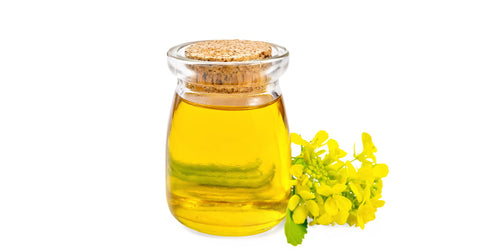Seed oils have become ubiquitous in our modern diet, found in everything from salad dressings and baked goods to processed snacks and fried foods. But are these seemingly harmless oils truly good for you?

This article delves into the controversial world of seed oils, exploring their potential health risks and why many health-conscious individuals, particularly women, are choosing to avoid them.
What are Seed Oils?
Seed oils are extracted from the seeds of various plants, including:
-
Sunflower
-
Canola
-
Soybean
-
Corn
-
Grapeseed
-
Safflower
Are Seed Oils Bad for You?
While some seed oils can be part of a healthy diet, others are highly processed and contain high amounts of omega-6 fatty acids. Consuming excessive amounts of omega-6s can disrupt the body's natural balance of fatty acids and contribute to inflammation.
Why Are Seed Oils Bad for You? The Risks of Overconsumption

-
Inflammation: An overabundance of omega-6 fatty acids can promote inflammation throughout the body, potentially contributing to chronic diseases like heart disease, arthritis, and autoimmune disorders.
-
Oxidative Stress: Many seed oils are highly refined, a process that involves high heat and chemical treatments, making them more prone to oxidation. Oxidized oils can damage cells and contribute to various health problems.
-
Hormonal Imbalances: Some studies suggest that excessive consumption of certain seed oils might disrupt hormonal balance, particularly affecting estrogen levels.
-
Gut Health: Seed oils can negatively impact the gut microbiome, the community of bacteria in your gut, potentially leading to digestive issues and inflammation.
Seed Oils to Avoid: Making Healthier Choices
While some seed oils, like flaxseed oil or hemp seed oil, can be beneficial in moderation, it's generally best to limit or avoid these highly processed seed oils:
-
Soybean oil
-
Corn oil
-
Cottonseed oil
-
Sunflower oil
-
Canola oil (rapeseed oil)
-
Grapeseed oil
-
Safflower oil
Healthier Alternatives to Seed Oils

-
Olive oil: Rich in monounsaturated fats and antioxidants.
-
Avocado oil: High in monounsaturated fats and has a high smoke point.
-
Coconut oil: A saturated fat that's stable at high temperatures.
Food Intolerance and Digestive Health
If you experience digestive issues after consuming seed oils or other foods, consider the possibility of food intolerances or sensitivities. These can trigger inflammation and disrupt your gut health.
Food Sensitivity Test Kit: Identify Your Triggers
A food sensitivity test kit can help you identify specific foods that might be triggering your symptoms. By eliminating or reducing these trigger foods, you can potentially alleviate your digestive problems and improve your overall gut health.
Key Takeaways:

-
While not all seed oils are bad, excessive consumption of highly processed seed oils can contribute to inflammation, oxidative stress, and other health problems.
-
Choose healthier alternatives like olive oil, avocado oil, or coconut oil for cooking and dressings.
-
If you experience digestive issues after consuming seed oils, consider a food sensitivity test to identify potential food intolerances.
Remember, this article is intended for informational purposes only and should not be considered a substitute for professional medical advice. If you have any concerns about your health or dietary choices, consult a qualified healthcare professional.
Frequently Asked Questions:
1. Are all seed oils unhealthy?
Not all seed oils are created equal. Some, like flaxseed oil and hemp seed oil, are rich in beneficial omega-3 fatty acids. However, many commercially produced seed oils are highly processed and can contribute to inflammation when consumed in excess.
2. How can I tell if a seed oil is highly processed?
Look for oils that are labeled as "refined," "bleached," or "deodorized." These processes often involve high heat and chemical treatments that can damage the oil's nutritional value. Choose cold-pressed or unrefined oils whenever possible.
3. What are some signs that I might be consuming too many seed oils?
While it can be difficult to pinpoint the effects of seed oils specifically, signs of excessive omega-6 intake and inflammation can include skin problems (acne, eczema), joint pain, fatigue, and digestive issues.
4. I'm using a seed oil that's labeled as "healthy." Should I still be concerned?
Even oils marketed as "healthy" can be misleading. Always read the label carefully and check the fatty acid profile. If an oil is high in omega-6 fatty acids, it's best to consume it in moderation or choose a healthier alternative.
5. I'm experiencing digestive issues. Could seed oils be contributing to the problem?
Yes, seed oils can disrupt your gut microbiome and contribute to inflammation, potentially leading to digestive problems. If you have persistent digestive issues, consider a food sensitivity test to identify potential food triggers, including sensitivities to certain oils, and consult with a healthcare professional to rule out other underlying conditions.


.png?v=1737390083)
.png?v=1737187409)


